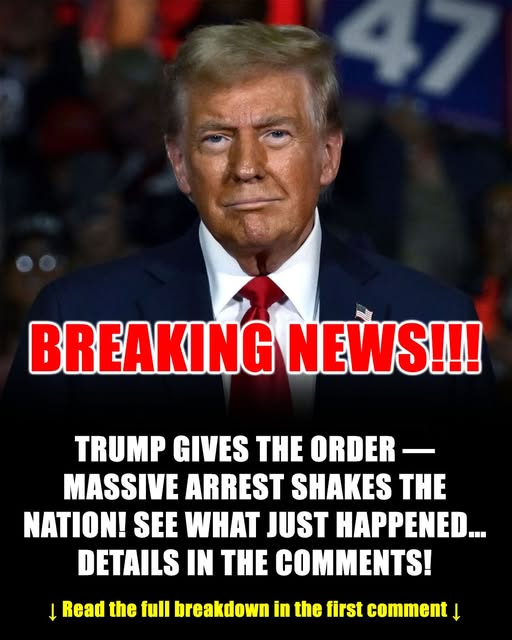President Trump’s administration marked a major milestone this week after the FBI confirmed the capture of another fugitive from its “Ten Most Wanted” list — a development the White House framed as part of its ongoing crackdown on violent criminal networks. The arrest and extradition of Francisco Javier Roman-Bardales, a high-ranking figure within the MS-13 gang, sent a clear message: under this administration, dangerous criminals will be pursued, caught, and held accountable.
Roman-Bardales had been wanted for years. Authorities linked him to an extensive web of criminal activity, including drug distribution and extortion operations in both the United States and El Salvador. Investigators also tied him to multiple acts of violence, including deadly attacks carried out against civilians and rival gang members. For law enforcement, he wasn’t just another fugitive — he was a key player in a violent organization known for leaving destruction in its wake.
His capture didn’t happen overnight. It required coordination between U.S. officials and counterparts in Mexico, where he had taken refuge. After months of tracking, negotiation, and intelligence-sharing, Mexican authorities handed him over to the FBI. When Director Kash Patel publicly announced the extradition, he emphasized the significance: another name on the “Ten Most Wanted” list crossed out, another threat removed from the streets.
This arrest makes Roman-Bardales the third major fugitive to be caught since early 2025, marking what administration officials are calling one of the most aggressive crime-fighting streaks in recent years.
Just days before, on January 30, 2025, Arnoldo Jimenez — wanted on first-degree murder charges — was taken into custody after years on the run. Jimenez had been sought in connection with a brutal slaying that had haunted investigators and devastated the victim’s family. His arrest offered long-awaited relief to those who had never stopped demanding justice.
And earlier that same week, on January 25, 2025, another fugitive, Donald Eugene Fields II, was captured. Fields had been wanted on suspicion of child rape and child sex trafficking — crimes that left communities outraged and desperate for closure. His arrest brought an end to a chilling case that had stretched beyond state lines.
With three fugitives captured in a matter of weeks, the pattern was impossible to ignore. For supporters of the administration, these arrests were proof of a commitment to law and order. For critics, they were a rare moment of agreement: the removal of dangerous criminals from public streets benefits everyone.
What stood out most in the public reaction wasn’t the politics — it was the relief. Families affected by these crimes had carried the weight of trauma and unanswered questions for years. Their stories rarely made front-page headlines. Their pain didn’t fit neatly into political sound bites. But these arrests meant something to them, something personal, something that felt like hope finally breaking through after long darkness.
Roman-Bardales’ extradition in particular struck a chord. MS-13 has long been synonymous with brutal violence, both in the United States and Central America. Its operations stretch across borders, involving everything from drug trafficking to extortion to targeted killings. Removing a senior leader from the organization forces real disruption and sends tremors through its hierarchy. For communities that have lived under the threat of gang intimidation, even one arrest can shift the atmosphere.
Behind the scenes, officials described the operation as complex, deliberate, and months in the making. International extraditions require layers of legal work, diplomatic coordination, and precise timing. It wasn’t a simple handoff — it was the result of shared goals and persistent effort. The FBI credited the success to cooperation with Mexican authorities and growing pressure on transnational criminal groups.
The White House quickly highlighted the arrests as part of a larger effort to clamp down on violent crime nationwide. They emphasized a policy strategy focused on stronger border enforcement, expanded cooperation with international law enforcement agencies, and increased resources dedicated to tracking fugitives believed to be hiding abroad.
According to administration officials, the message is straightforward: there is no safe hiding place for violent offenders, no country far enough to escape accountability.
For ordinary Americans watching from home, the news carried a different tone. They weren’t interested in political framing. What mattered was the sense that justice was finally gaining momentum. That criminals who had evaded capture for years were being located. That cases once labeled “cold” were coming back to life. That families who had mourned without closure were now one step closer to answers.
Communities affected by gang violence, in particular, expressed cautious optimism. These neighborhoods know the weight of fear. They know what it feels like to look over their shoulders, to wonder whether threats would escalate, to see young people pulled into cycles of crime. Removing a leader like Roman-Bardales doesn’t erase the problem — but it does cut into the structure that keeps that violence alive.
Law enforcement officials were careful to note that the fight isn’t over. Many dangerous fugitives remain at large, and the work of dismantling organized criminal networks is slow, difficult, and constant. But victories like these matter. They send ripples through communities, reminding people that long-term cases aren’t forgotten, that justice isn’t surrendered just because the timeline stretches across years.
In press briefings, administration representatives reiterated the same point: the safety of the American people is non-negotiable, and the government will pursue every tool available — legal, diplomatic, and investigative — to protect its citizens.
The political noise will continue, as it always does. But beneath that noise, real families are experiencing real closure. Real communities are breathing easier. And real justice, however delayed, is finally catching up to those who spent years believing they could outrun it.
Roman-Bardales now faces the U.S. justice system. So do Jimenez and Fields. Their arrests mark the end of long pursuits — and the beginning of accountability.
And for the people whose lives were torn apart by their crimes, that accountability matters more than any headline ever could.

